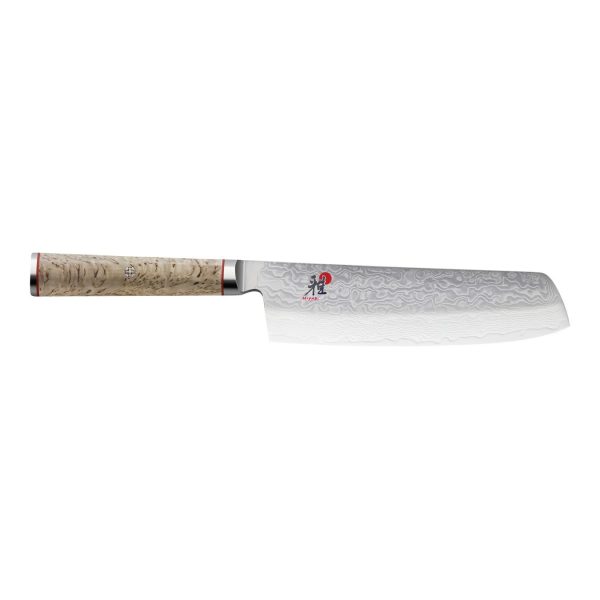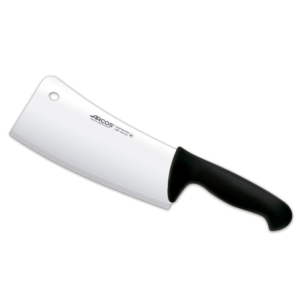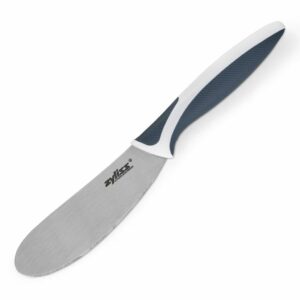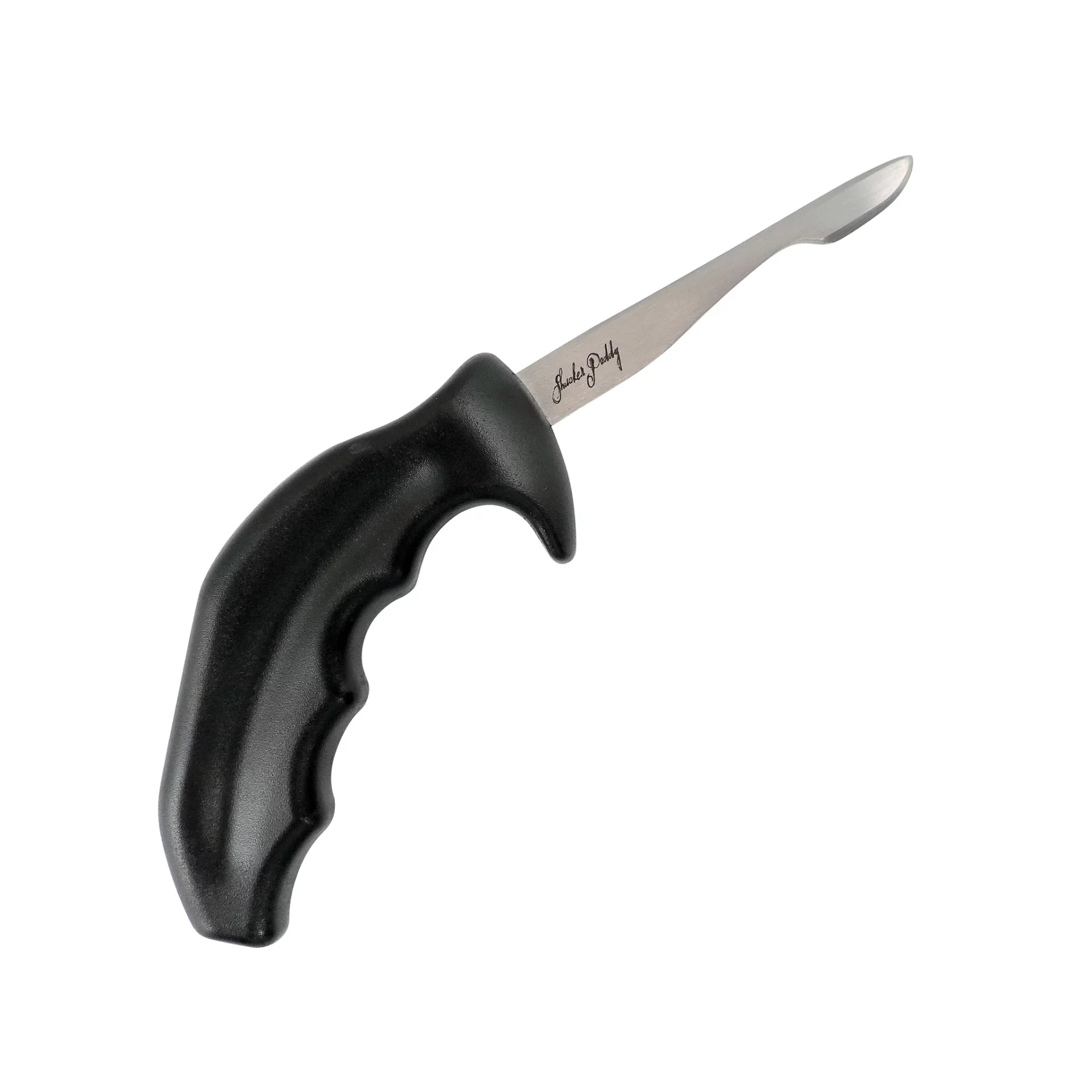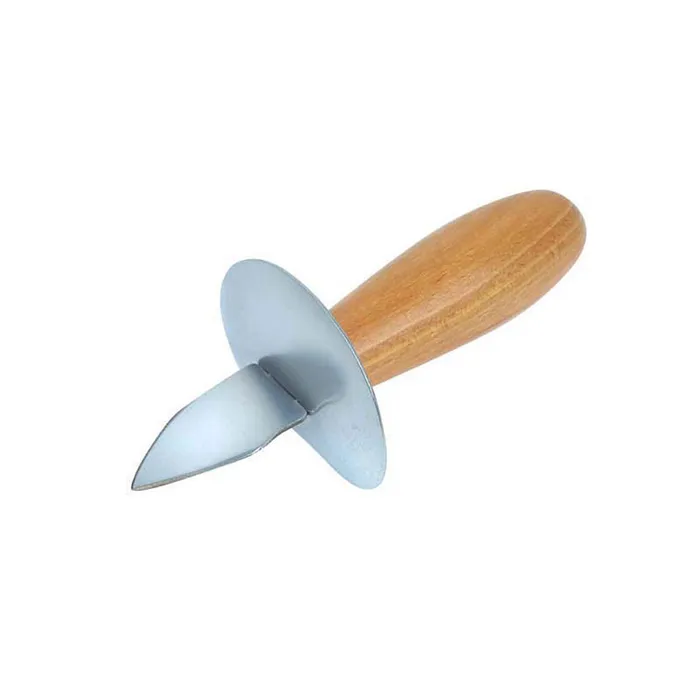Description
The nakiri is the Japanese vegetable knife. Thanks to its distinctive blade shape, the nakiri is extremely useful when you want to make extremely fine and delicate cuts such as julienne, brunoise (cubing), or ribbon cuts. Use the nakiri when you want quick and even results – the flat edge helps to create a faster chopping action and the straight edge makes perfect contact with the cutting board for better results.
The Miyabi 5000MCD series represents the pinnacle of the art of knife making. The striking appearance of both the blade and handle is matched by the sublime cutting performance of the SG2 micro-carbide powder steel core. The core is protected by 100 layers of Damascus flower patterned steel, adding durability and outstanding beauty. The scalpel-like edge is complemented by the commanding aesthetic of the Karelian (Masur) Birch handle. Prized the world over for its unique grain and colour, Karelian Birch is the only wood to have been used in a Faberge Egg.
Miyabi 5000MCD knives are tempered using the innovative ice-hardening process known as CRYODUR. This proprietary process results in a masterwork blade that has a hardness rating of Rockwell 63, ensuring an unparalleled edge and long-lasting sharpness.
Features:
- G2 micro-carbide powder steel
- Hand-honed using a traditional, three-step Honbazuke method to a 9.5 to 12° edge
- CRYODUR blade, ice-hardened to Rockwell 63
- Blade consists of 101 layers of steel, resulting in a gorgeous floral Damascus pattern, with katana edge
- Ergonomic D-shape handle made from prized Japanese Karelian (Masur) Birch
- Steel endcap features a debossed manufacturer’s logo
- Insignia on handle contains fifteen separate components, all assembled by hand
- Handcrafted in Seki, Japan
Hand wash only.
Care Instructions:
Do not use this knife to cut through bones or frozen foods as this will damage the edge and potentially chip the blade.
Do not wash in dishwasher, as this may cause corrosion of the blades. To clean, run under hot water with a small amount of detergent and dry thoroughly.
Store in a dry, moisture-free place to avoid rusting or discolouration. If the knives are not used for an extended period of time, wrap them in a dry cloth or newspaper and store them in a dry place; the hygroscopic paper will keep the blades dry and the oil from the printing ink prevent corrosion. Miyabi knives should only be sharpened with a professional sharpening stone due to the extremely hard steel and the fine Honbazuke honing of the knives.

